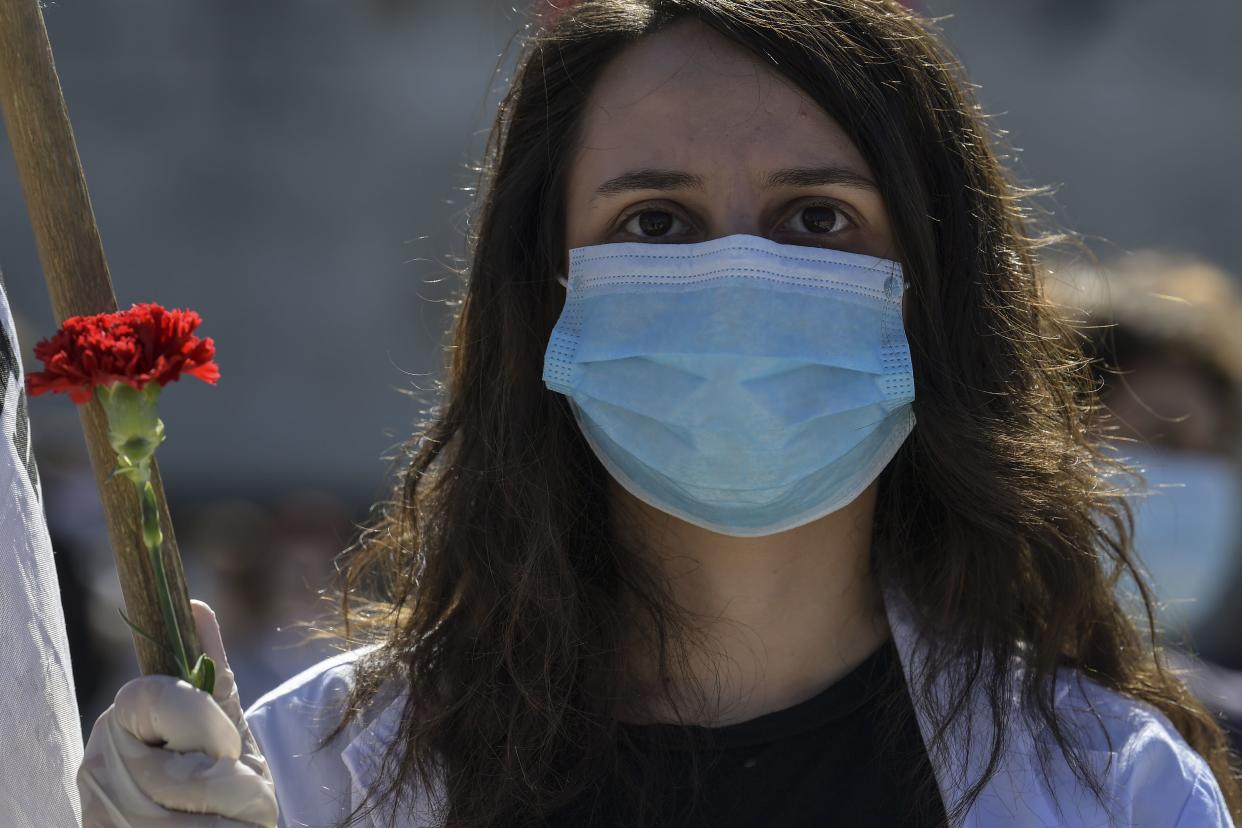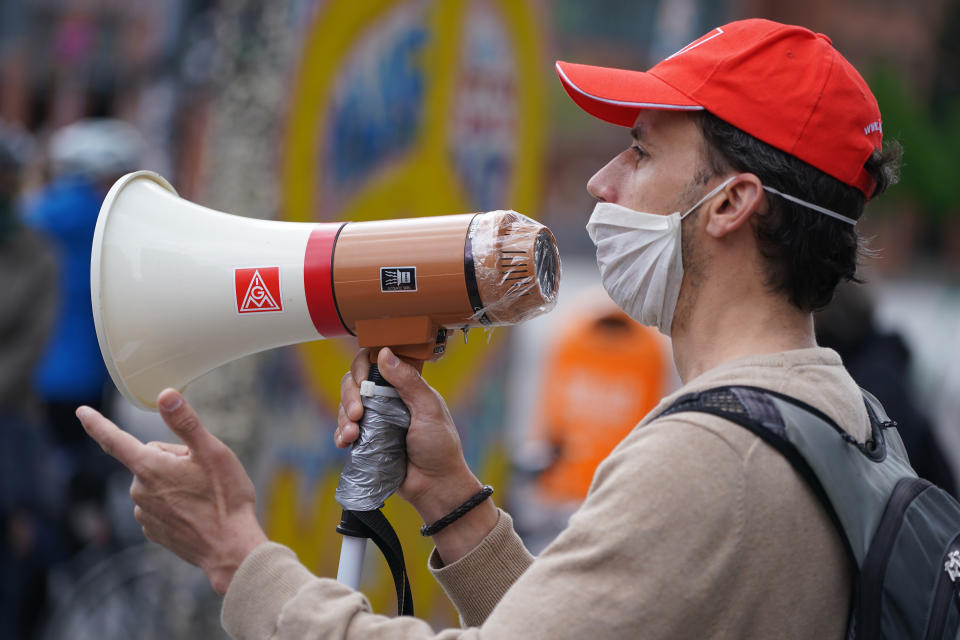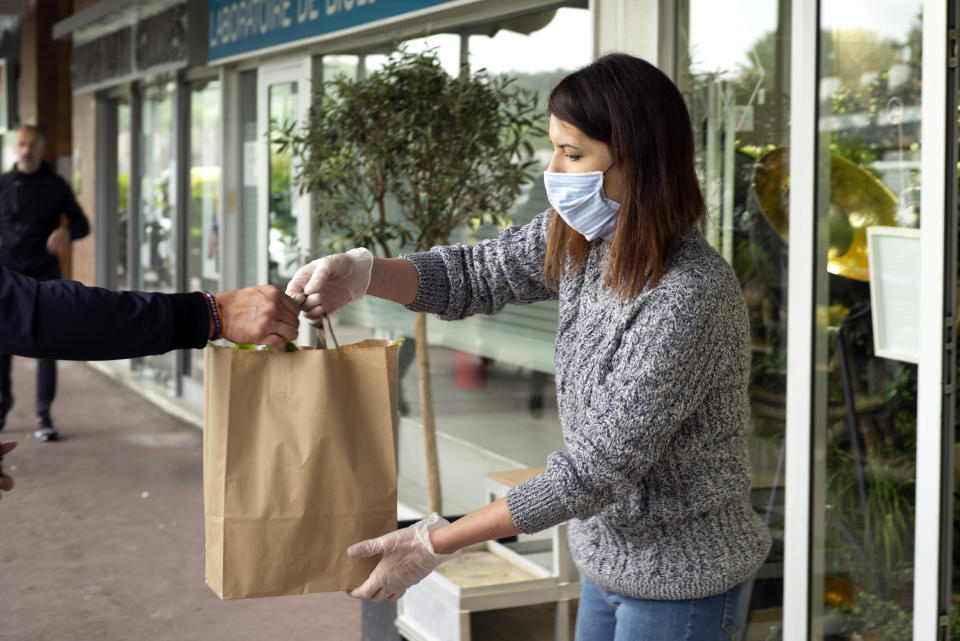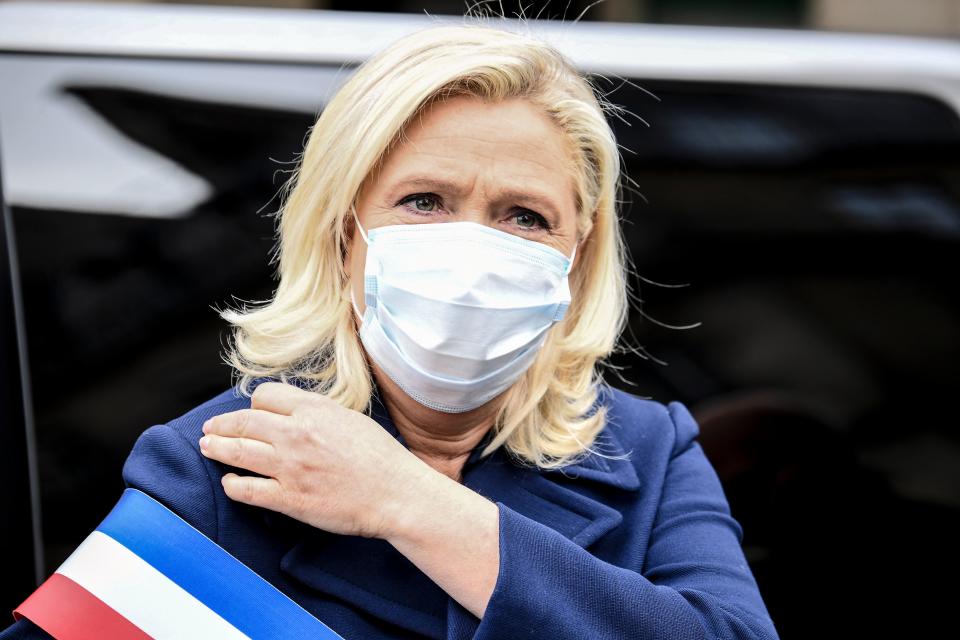Coronavirus: Scientists dismiss ‘dubious’ and ‘unsubstantiated’ claim yoga protects against infection

Experts have largely dismissed a paper that suggests yoga could protect against the coronavirus.
A team from Phule Pune University in India argued existing measures to combat the outbreak are “insufficient”.
They felt the “therapeutic potential of traditional and complementary medicine systems such as Ayurveda and yoga” were “not really being considered during this crisis”.
Writing in The Journal of Alternative and Complementary Medicine, the team “attempted to highlight” how the unconventional approaches could ward off the coronavirus and aid treatment of the respiratory disease COVID-19.
Experts have called the paper “dubious”, “unsubstantiated” and “not particularly scientific”.

Coconut oil ‘may protect from pathogen entry’, paper claims
The coronavirus is thought to have emerged at a seafood and live animal market in the Chinese city Wuhan, capital of Hubei province, at the end of 2019.
Anyone can catch the infection, however, the elderly and already ill are more at risk of complications.
Only the relatively small number of people worldwide who have been exposed to the virus are thought to have immunity against it.
Latest coronavirus news, updates and advice
Live: Follow all the latest updates from the UK and around the world
Fact-checker: The number of COVID-19 cases in your local area
Explained: Symptoms, latest advice and how it compares to the flu
The Phule Pune team argued preventative measures are only focusing on how to combat the virus or develop immunity, ignoring the “host”, in this case people.
They advocate for Ayurveda – an ancient belief that wellness depends on a delicate balance between the mind, body and spirit.
The team wrote building immunity by “strength of mind” can help people cope with “stressors, including infection”.
“Physiological masks” and “therapeutic cleansing procedures” could supposedly also keep people virus-free.
Ayurveda texts reportedly recommend “the application of medicated oils made from butter oil (Ghee) and vegetable oils such as sesame or coconut in the nostrils.
“This may protect the respiratory tract from pathogen entry”.

Yoga does ‘not in any way prevent the coronavirus’
Experts have largely dismissed the Phule Pune team’s claims.
“The Journal of Alternative and Complementary Medicine has a history of publishing papers of dubious quality and making unsubstantiated claims,” Dr David Head from the University of Southampton told Yahoo UK.
“The authors conclude ‘yoga including meditation could be a simple and useful home-based practice for the prevention and post-recovery management of COVID-19’.
“There is no evidence to support this statement.”
People who suffer complications from the coronavirus tend to develop pneumonia.
This occurs when a respiratory infection spreads to the alveoli (air sacs) in the lungs.
The air sacs become inflamed and filled with fluid or pus.
As the lungs struggle to draw in air, oxygen levels in the blood drop and carbon dioxide accumulates.
Dr Head argued the citations the team included in their paper “do not conclude viral pneumonia can be prevented by yoga”.
“Yoga may be useful for relaxation and reducing stress, but it will not in any way prevent COVID-19”, he said.
“It is important to always refer to mainstream public health advice and practitioners.”
This opinion was echoed by another expert.
Dr Kao Rowland from the University of Edinburgh told Yahoo UK the paper does “not seem to be particularly scientific”.
“There is no real offer of evidence to back up the claims in the piece,” he added.
Not every expert dismissed the paper out of hand, however.
“For all new therapies and therapeutic approaches it is important to see the evidence behind a recommendation for their use,” Professor David Heymann from the London School of Hygiene & Tropical Medicine told Yahoo UK.
“If they have an evidence base that suggests they are effective they should be considered for use.
“This goes for all medicines and therapeutic approaches”.
The NHS claims there is “some evidence” that regular yoga helps ease depression and stress.
Scientists have previously expressed concern the pandemic may have a “profound” and “pervasive” impact on people’s mental health.
For the most part, the World Health Organization has dismissed myths like adding pepper to soup or a hot bath could ward off the coronavirus.

What is the coronavirus?
The coronavirus is one of seven strains of a virus class that are known to infect humans.
Others cause everything from the common cold to severe acute respiratory syndrome (Sars), which killed 774 people during its 2002/3 outbreak.
Since the outbreak was identified, more than 3.2 million cases have been confirmed worldwide, according to Johns Hopkins University.
Of these cases, over one million are known to have “recovered”.
Globally, the death toll has exceeded 233,700.
The coronavirus mainly spreads face to face via infected droplets expelled in a cough or sneeze.
There is also evidence it is transmitted in faeces and can survive on surfaces.
The coronavirus has no “set” treatment, with most patients naturally fighting off the infection.
Those requiring hospitalisation are given “supportive care”, like ventilation, while their immune system gets to work.
Officials have urged people to avoid infection by washing their hands regularly and maintaining social distancing.




